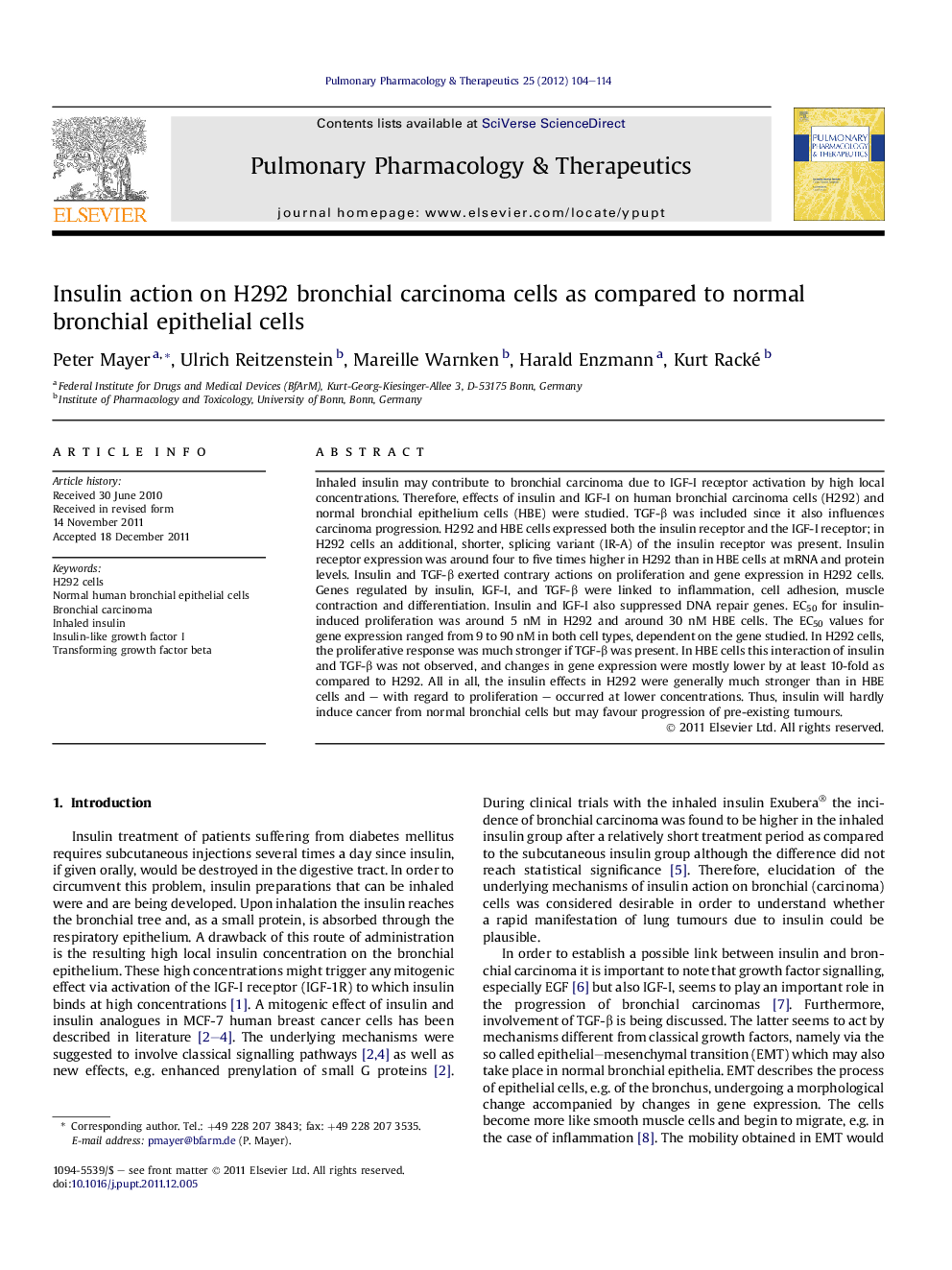| Article ID | Journal | Published Year | Pages | File Type |
|---|---|---|---|---|
| 2567200 | Pulmonary Pharmacology & Therapeutics | 2012 | 11 Pages |
Inhaled insulin may contribute to bronchial carcinoma due to IGF-I receptor activation by high local concentrations. Therefore, effects of insulin and IGF-I on human bronchial carcinoma cells (H292) and normal bronchial epithelium cells (HBE) were studied. TGF-β was included since it also influences carcinoma progression. H292 and HBE cells expressed both the insulin receptor and the IGF-I receptor; in H292 cells an additional, shorter, splicing variant (IR-A) of the insulin receptor was present. Insulin receptor expression was around four to five times higher in H292 than in HBE cells at mRNA and protein levels. Insulin and TGF-β exerted contrary actions on proliferation and gene expression in H292 cells. Genes regulated by insulin, IGF-I, and TGF-β were linked to inflammation, cell adhesion, muscle contraction and differentiation. Insulin and IGF-I also suppressed DNA repair genes. EC50 for insulin-induced proliferation was around 5 nM in H292 and around 30 nM HBE cells. The EC50 values for gene expression ranged from 9 to 90 nM in both cell types, dependent on the gene studied. In H292 cells, the proliferative response was much stronger if TGF-β was present. In HBE cells this interaction of insulin and TGF-β was not observed, and changes in gene expression were mostly lower by at least 10-fold as compared to H292. All in all, the insulin effects in H292 were generally much stronger than in HBE cells and – with regard to proliferation – occurred at lower concentrations. Thus, insulin will hardly induce cancer from normal bronchial cells but may favour progression of pre-existing tumours.
